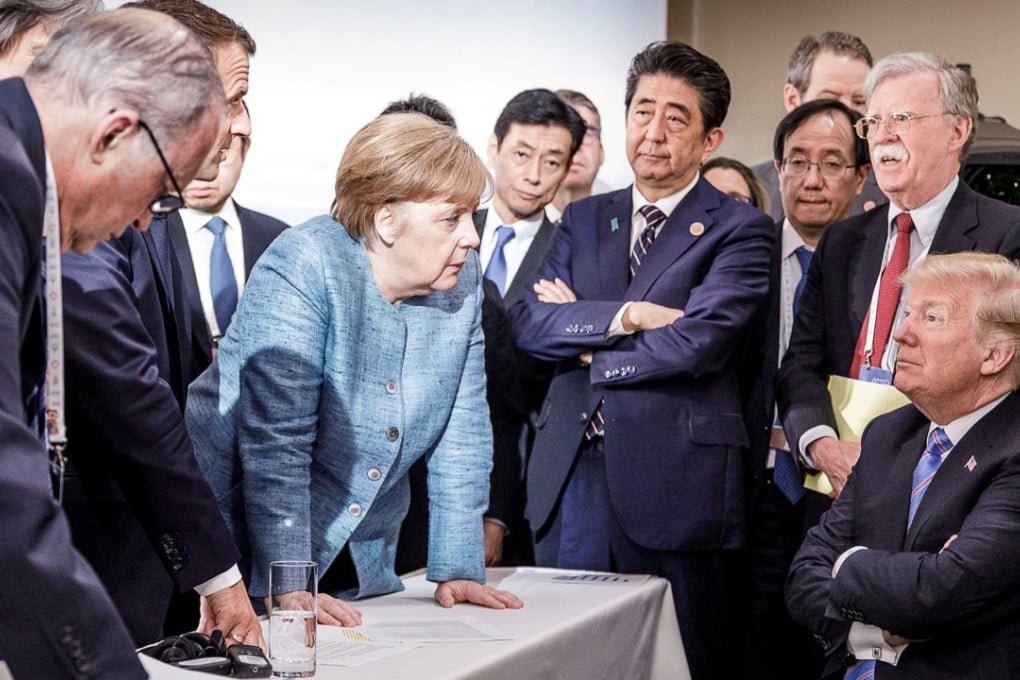G7 ends in a farce as Donald Trump tweets fury at ‘dishonest’ and ‘weak’ Canada ally Justin Trudeau, rejects summit communique
Leaders of G7 issue statement to paper over fierce arguments; Trump tweets in response to Canada’s Trudeau

The G7 summit ended in farce and a renewed threat of trade war as US President Donald Trump rejected an attempt to write a consensus statement and bitterly insulted the Canadian host.
Just minutes after a joint communique that had been approved by the other leaders of the Group of Seven allies was published, Trump launched a Twitter broadside from aboard Air Force One.
The US leader had left the summit early en route for Singapore and a historic nuclear summit with North Korea’s Kim Jong-un, only to take exception to comments made by Canada’s Prime Minister Justin Trudeau at a news conference on the ground in Quebec.
“Based on Justin’s false statements at his news conference, and the fact that Canada is charging massive Tariffs to our US farmers, workers and companies, I have instructed our US Reps not to endorse the Communique as we look at Tariffs on automobiles flooding the US Market!” Trump tweeted.
“PM Justin Trudeau of Canada acted so meek and mild during our @G7 meetings only to give a news conference after I left saying that, ‘US Tariffs were kind of insulting’ and he ‘will not be pushed around.’ Very dishonest & weak.”